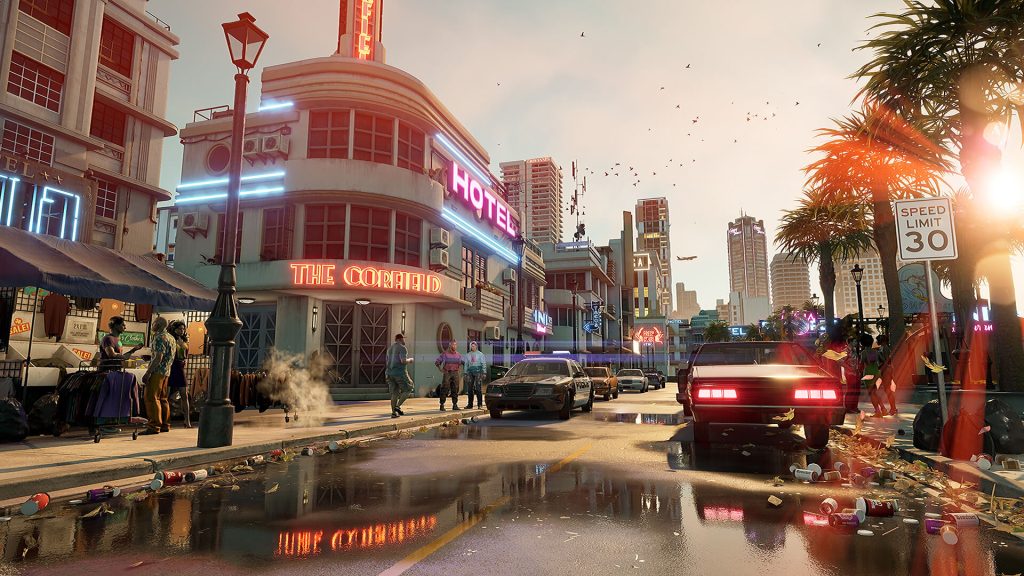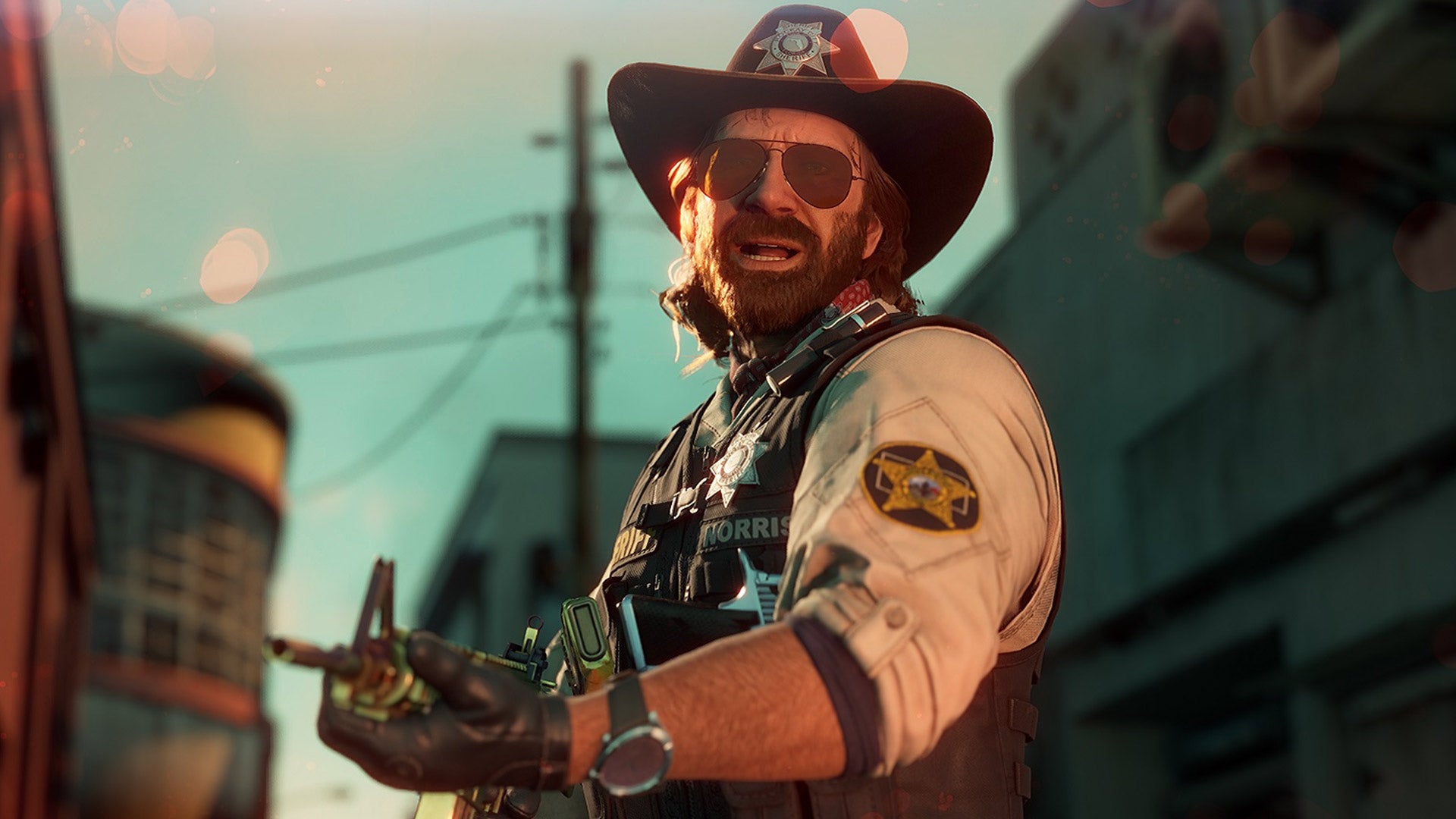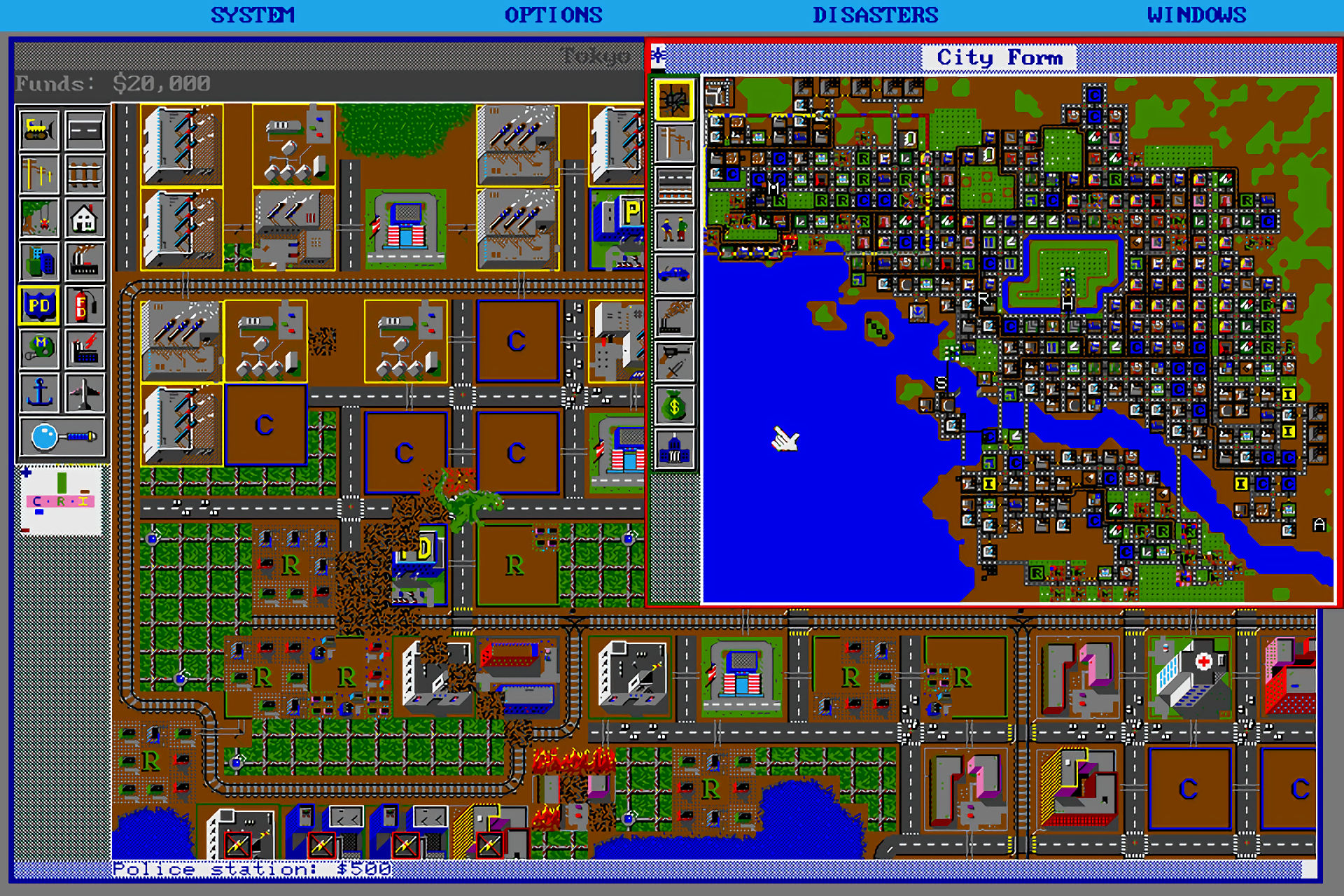Crime Boss: Rockay City is a game that emerged with much fanfare, promising a nostalgic trip back to the golden era of ’80s and ’90s action heroes, coupled with intense heist gameplay. However, the actual experience of diving into the game reveals a blend of engaging mechanics and disappointing execution.
Initial Expectations and Surprises
When I started Crime Boss: Rockay City, my expectations were modest, primarily shaped by the game’s lukewarm reception on the Epic Games Store and the cringe-worthy trailers featuring actors who seemed out of place in a video game. Surprisingly, once I began playing, I was captivated by the game’s core concept: a roguelite experience where you aim to take over Rockay City as a budding gang leader. The gameplay involves a mix of heist missions, territory control, and recruitment, which, at its best, is highly engaging and addictive.

The Gameplay: A Roguelite Twist
Crime Boss: Rockay City deviates from the typical heist game formula by incorporating roguelite elements. Each run starts with Baker, voiced by Michael Madsen, whose gruff voice adds some authenticity to the character. The objective is to expand your criminal empire, recruiting new gang members, defending territories, and executing various missions. The gameplay loop of expanding territory and fending off rivals is satisfying, making you want to keep pushing your boundaries.
However, the story and dialogue are significant letdowns. The narrative is overly simplistic and fails to add depth or charm to the game. The writing is often cringe-worthy, diminishing the impact of otherwise strong voice performances by actors like Madsen. The presence of high-profile actors, including Chuck Norris, feels more like a gimmick than a meaningful addition, with Norris’ performance being particularly flat and uninspired.
The Challenge and Frustration
One of the unique aspects of Crime Boss: Rockay City is its roguelite challenge. There’s no manual save, meaning a failed mission can set you back significantly, forcing you to restart with new perks and bonuses. While this could theoretically add to the game’s replayability, in practice, it becomes tedious due to repetitive missions, shallow level design, and lackluster AI. The police and rival gangs compensate for their lack of intelligence with sheer numbers and aggression, making some missions frustratingly difficult.

Replayability suffers because of the repetitive nature of the game. Despite gaining new bonuses and perks, the same cutscenes, missions, and dialogues play out each time, reducing the incentive to continue after multiple attempts. The game’s multiplayer mode, reminiscent of Payday 2, does offer a cooperative heist experience, but it fails to overshadow the shortcomings of the single-player campaign.
The Missed Potential
The premise of Crime Boss: Rockay City holds significant potential. Managing an expanding criminal empire, planning heists, and engaging in intense firefights should be a recipe for success. However, the execution falls short. The characters feel like parodies, the gunfights lack depth, and the stealth mechanics are underwhelming. The game feels dated, reminiscent of early 2010s titles rather than a modern release. This is particularly disappointing given that Payday 2, a game it heavily borrows from, was released over a decade ago and still manages to outperform it in terms of quality and engagement.


Final Verdict
Despite its flaws, Crime Boss: Rockay City manages to offer moments of fun, particularly in its core gameplay loop of expanding your criminal empire. The initial thrill of seeing your territory grow and successfully pulling off heists is genuinely enjoyable. However, the game’s numerous shortcomings, from poor writing and repetitive gameplay to lackluster AI and uninspired voice acting, prevent it from being a standout title.
For its launch price of $19.99 on Steam, Crime Boss: Rockay City might still be worth a try for fans of the genre or those looking for a nostalgic romp. However, potential players should temper their expectations and be prepared for a mix of engaging gameplay and frustrating design choices. The game could have been a hit if it had fully utilized its potential, but as it stands, it’s a missed opportunity.



